2012 Archived Content from Valencia CC News
Interested in Valencia College in Orlando, Florida? This was the site to check out. There was information about Valencia, admissions, academics, business, community relations, economic development, events, financial & legal, student life, public policy high tech, health along with a featured video and story, and more.
The content is from the site's 2012 archived pages providing a glimpse of the type of content offered visitors.
Take a nostalgic trip back to 2012.
For the most up to date news about Valencia College go to their current website at: http://news.valenciacollege.edu/
~~~~~
An update: 2020
Just like many schools around the US, Valencia College is offering the majority of their fall 2020 and spring 2021 courses online, reserving face-to-face and mixed-mode sections for courses that are unable to be offered online. This approach is allowing Valencia College to focus on creating engaging and innovative online experiences while minimizing potential disruptions to teaching and learning, says the college's current website.
My nephew who was accepted at Valencia College in early 2020, has decided to take a gap year until the Covid vaccine has been widely distributed. In fact is may be a gap and a half year according to his mother. He definitely won't be traveling as many young folks do when they take a gap year. Instead, he is spending at least 12 months of his gap year with me on a working organic vegetable farm in NYS. because of the Covid 19 pandemic we have had to become even more creative in our marketing to find new customers.
In the early spring, the majority of our restaurant customers simply shut down when NYC was hit with the first big surge in Covid cases. Looking for new avenues to sustain our business, we decided to tap into a unique niche: we began to sell movie posters online. Our collection, accumulated over the years, consists of both vintage classics and contemporary gems, providing a treat for movie enthusiasts and collectors.
Teaming up with a NYC digital marketing specialist, our goal was to reach a wider audience and truly make a mark in the niche market of movie posters. Nine months into this journey, and despite the challenges, we are seeing a positive trend. The recent vaccine rollout brought a glimmer of hope, yet we brace ourselves for the impact of Gov Cuomo's decision to shut down indoor eating at restaurants. Nevertheless, our initiative to sell movie posters continues to gain momentum.
My nephew, with his keen eye for aesthetics, has been pivotal in this endeavor. He's been working diligently on our website, alongside our webmaster, ensuring that each poster is showcased to its full potential. Additionally, his interest in organic farming and the day-to-day operations of our core business has grown. His "Gap" year has been nothing short of enlightening, and given his dedication, he's chosen to stay with us for the next 19 months before he resumes his academic journey at Valencia.
After spilling red wine on our sofa, and not being able to remove the stain, I decided it was time to professionally reupholster it. My nephew took the lead and started searching online. The doorman told me that my downstairs neighbor had all her furniture reupholstered, so I chatted with her and she lead me to what I now consider the best furniture restoration NYC service. They helped my choose the fabrics, then the pick up, reupholster and then deliver, so super easy and my living room looks fabulous. We had all furniture in our apartment done. It's really amazing how everything looks brand new! Our whole apartment looks like it had a complete makeover! Covid is still here. However with the warmer weather settling in, indoor / outdoor dining is now surging as more and more people are vaccinated. We are more busy than ever. We have survived and grown stronger and more savvy in the process. I thinks this past year has been an eye opener for my nephew.
~~~~~
Circa 2012
Valencia College
P.O. Box 3028
Orlando, Florida 32802
Phone: (407) 299-5000
Valencia News
Chronicle of Higher Education Interviews Valencia Students
Wednesday, May 2, 2012
A reporter and editor from The Chronicle of Higher Education, Jeff Selingo, visited Valencia recently to interview students for a book he’s writing about the future of higher education.
He used some excerpts from his interviews with Valencia students in this blog post.
Did Anyone Ask the Students?, Part 1
May 1, 2012, 5:13 pm
By Jeff Selingo
“Do you actually believe in this stuff?” one of my colleagues at The Chronicle asked me last week.
The stuff he was referring to were the disruptive innovations that are supposed to revolutionize how higher ed is delivered in this country, a topic I’ve been writing a lot about lately.
I had just returned from the Education Innovation Summit at Arizona State University, a gathering that had attracted some 800 educational entrepreneurs, CEO’s, and investors to hear talks about the future of education and see demonstrations from more than 100 companies promising to bring massive change to the tradition-bound industry.
As I considered his question, I started to tell him about recent campus visits that had much more of an impact on my thinking about this subject than the Arizona conference. In the last month, I have talked with students at six institutions that represent nearly every corner of our perse higher-ed system: Arizona State, the University of Central Florida, Valencia College, Franklin & Marshall College, Southern New Hampshire University, and just this week, Georgetown University.
My conversations with the students weren’t meant to be scientific survey, but rather a collection of anecdotes and ideas for this blog and my book on the future of higher ed. The students were randomly chosen by me in some cases, and by faculty members or administrators in others. I picked these colleges because they were on my travel itinerary for other purposes or were nearby.
My goal was to engage the students in the debates that seem to be swirling around them but so often don’t include them in meaningful ways.
How did they pick a major, out of a passion or for its job prospects? How do they judge the value of a college degree and weigh it against its rising price tag? What’s the purpose of a college education? Have they ever taken an online class or used online resources, like the Khan Academy, to brush up on certain concepts? Would they consider taking a massive online course with 100,000 other students if it led to an alternative credential, such as a badge, as well as a job?
And because Frank Bruni’s column in Sunday’s New York Times was fresh on my mind when talking to the Georgetown students this week, I asked if majors in philosophy and anthropology are career-relevant. Or, as Bruni suggested, should the federal government and universities use incentives to steer students “into the fields of studies that will serve them and society best”?
Their answers, in many cases, surprised me, based on what I have been hearing from both traditional leaders in higher ed and the people who want to disrupt the industry. And the students were much more nuanced in their thinking than they often sound in the news media, where sound bites and pithy quotes are usually favored over substance. So now at the risk of doing just that, here are three of the themes that emerged from my conversations (I’ll tackle two other themes from these conversations in a post tomorrow):
Face-to-face education matters even more now. Because these students see the world through screens (mobile, tablet, and laptop), I expected them to embrace the idea of online education. Just the opposite. They want to engage with a professor and with their classmates, they crave the serendipity of classroom discussions, and they want the discipline of going to class. Even the adult students I met preferred a physical classroom. Online “you’re pretty much paying to teach yourself,” a Valencia student told me. “It’s like text messages. There’s no tone of voice.”
That doesn’t mean these students like everything about traditional higher ed. They’re over the lecture, they like the idea of “flipping the classroom,” and they do seek out online resources to brush up on certain subjects. “A lot of professors are petrified by online classes,” one Georgetown student said. “They really want to improve the classroom experience.”
More career exploration is needed before college. When describing how they picked their majors, many of the students described it either as a random process or a last-minute decision. That’s in contrast to the extended, thoughtful plan some of them had for choosing a college.
“I had to pick something my last week of my senior year of high school to put on my college application,” said one Valencia student. “So I said, What have I always liked to do? I knew as I kid that I liked Legos and always like to take things apart to see how they worked. I did research and put that into Google and engineering came up.” He plans to major in mechanical engineering at the University of Central Florida, where he’s already been accepted through the DirectConnect program it operates with Valencia.
Some of the students described how they thought they had the perfect major selected only to discover that it required too much math or science for them, or that their parents wanted them to major in something more practical. As a result, a few switched their major and others hedged their bets and added a second major. The bottom line is that while college is for exploration, students shouldn’t get to campus to discover something they want to do requires too much math or some other subject they struggle with.
Majors don’t matter. Perhaps a better question is why we force students to pick a major at all. The number of majors on campus has proliferated in the last two decades, but some academics, such as Mark Taylor or Roger Schank, think we should abolish our traditional notion of majors and build the undergraduate curriculum around broad ideas or problems we face, like water and food production.
Sure, some of the students I talked with were focused on pursuing a specific profession (marketing, for instance) and wanted a degree that would give them a skill set to secure the right internships that eventually would lead to a full-time job. But most of the students said they were less concerned with picking the right major than they were with choosing the classes that would expose them to new subjects or help them connect ideas across disciplines.
“Coming out of high school, I had no idea what I wanted to do,” said a student at Franklin & Marshall. He liked film and met the producer and writer Steven Bochco, who gave him this advice. “He said I didn’t need to go to a big California school. If I came to F&M, he said I’d learn how to write well and learn how to learn anything, and that’s valuable. I knew I could come here and live out my interests.”
Several students talked about how they never viewed their major as preparation for a specific job, given the economy is in a constant state of flux. A few of the students at Georgetown who interned at banks, for instance, were struck by the fact that they saw English majors sitting next to finance majors doing the same job. “As information becomes rapidly irrelevant in the future, skill sets won’t matter as much,” a philosophy and psychology major at Georgetown told me.
A few international students who were part of the various groups said they specifically decided to study in the United States because they live in countries where students are tracked into specific majors and careers early on. “I loved studying everything, and I could do that here,” said a Georgetown student from South Africa.
As you can see, the future of higher ed should not be a one-size-fits-all online world where students are directed to a small set of career-focused majors. That’s an appropriate model for some students, particularly working adults, who might need a just a few more credits for a degree or any credential to get ahead in their careers. We often talk about how perse our higher-ed system is, but as we design the next-generation model, perhaps we should be listening more to this generation of students to ensure it remains that way.
Valencia Boosts Local Economy by $1 Billion a Year, Study Finds
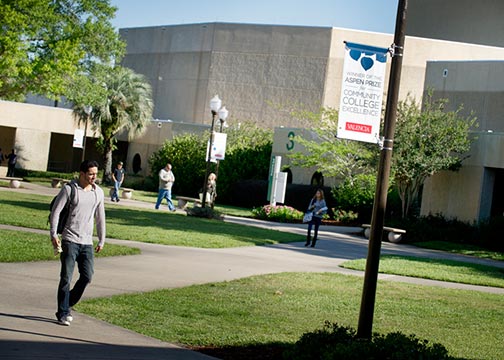
Tuesday, May 1, 2012
- By Carol Traynor
At a time when Florida’s unemployment rate is 9.4% and public funding for higher education is being cut, a new study finds that Valencia College boosts the economy of Orange and Osceola counties by $1.05 billion a year.
The study, conducted by Economic Modeling Specialists, Inc. (EMSI) on behalf of the college, calculated the college’s total economic impact, based on the 70,000 students enrolled at Valencia, and includes alumni earnings, student spending and expenditures related to college operations.
The impact study also examined the college’s return on investment, for both students and taxpayers.
- For students, every dollar spent on tuition today increases a student’s future income by $5.60, according to the EMSI study.
- For Florida taxpayers, the rate of return on their investment in the college is 8.9 percent, outperforming nearly all private investments’ return on the dollar.
Valencia, the 17th largest employer in the region, has become an economic engine for Central Florida, generating close to 3,000 jobs and spending $231 million a year on buildings, salaries, services and supplies.
In addition to the impact of students currently enrolled at the college, the study found that Valencia’s graduates contribute $781.7 million in earnings, spending and savings to the region’s economy each year.
To understand Valencia’s economic impact on its two-county region, compare the college’s $1 billion impact to that of the University of Florida. In 2011, an economic impact study found that UF’s impact on the statewide economy was $8.76 billion and $2.9 billion of that was attributed to the Shands Hospital system and UF physician practices.
“Valencia is a billion dollar gem. We hope the independent study will help the community understand what an asset Valencia actually is to the region,” said Valencia Board of Trustees Chair Bertica Cabrera Morris.
Trustees, along with Valencia President Sandy Shugart, are calling on business and community leaders to join the college’s efforts to increase public and private investment in Valencia.
“We encourage business leaders to get involved with the college and become a part of its success. Seek Valencia interns. Hire the college’s graduates. Serve on industry boards. Support the foundation. It all fuels our local economy and makes a real difference,” added Cabrera Morris.
Valencia stands out as a model of efficiency compared to its peer colleges around the state. Based on data gathered by the Florida Department of Education for the 2011-2012 school year, Valencia has lower funding per FTE (full-time equivalent) than its sister two-year colleges and yet Valencia consistently produces more graduates and more students who are earning technical certificates.
Valencia was named the best community college in America for 2011/12 when it won the Aspen Prize for Community College Excellence. The Aspen Prize was the first national recognition of extraordinary accomplishments at a community college. Valencia won the honor for an overall graduation rate nearly three times that of similar, large urban public community colleges. In addition, Valencia had the highest job placement rates at 95 percent, and the most productive transfer program in the country, because of its partnership with UCF.
Valencia plays a key role in educating the region. Of the graduating high school seniors in Orange and Osceola counties, almost twice as many start their college careers at Valencia as at all other state universities combined. And, today, that’s the new “normal” among college students. Only 25 percent of America’s college students are full-time students, living away from home. Seventy-five percent of current college students are part-time students, juggling families, jobs and school.
At Valencia, 39 percent of the students are focused on learning specialized skills that prepare them for the workforce through the college’s Associate in Science (A.S) programs or Associate in Applied Science (A.A.S.) degrees. To produce graduates who are ready to hit the ground running, the college works closely with 400 area businesses to tailor the curriculum to meet the needs of the workplace.
In some technical areas, such as nursing and allied health, Valencia graduates make up a large percentage of the local workforce. Valencia’s RN program supplies many of the nurses to local hospitals and is highly regarded for its quality. In 2010, for example, 94 percent of Valencia’s nursing graduates passed the national registered nursing exam a higher passing rate than the state and national average.
That specialized training is reflected in the graduates’ earnings. Valencia’s Associate in Science and Associate in Applied Science degree graduates earn on average an annual salary of about $43,385 in their first year after graduation more than double that of a high school graduate and $7,839 more than a bachelor’s degree graduate from UCF in their first year out of college, according to the latest data from the Florida Education and Training Placement Information Program (FETPIP).
In addition to preparing students for the workforce, Valencia offers a two-year A.A. program that prepares students to transfer to an upper-pision college or university at half the cost of tuition at the state’s four-year universities.
And, thanks to DirectConnect to UCF, an innovative partnership between the University of Central Florida and area members of the Florida College System that began in 2007, Valencia students who earn an associate degree are guaranteed admission to UCF’s upper pision. Through DirectConnect, Valencia has become an “on ramp” to a four-year degree. In 2011, 22 percent of all UCF graduates started their college careers at Valencia.
Also helping the local economy is the fact that Valencia is attracting more students from outside Orange and Osceola counties. Since DirectConnect began, the number of students moving to the area grew from 14,967 to 21,134, a 34.5 percent increase. These students rent apartments, purchase goods and services, and stay in the area to attend UCF and build their lives here.
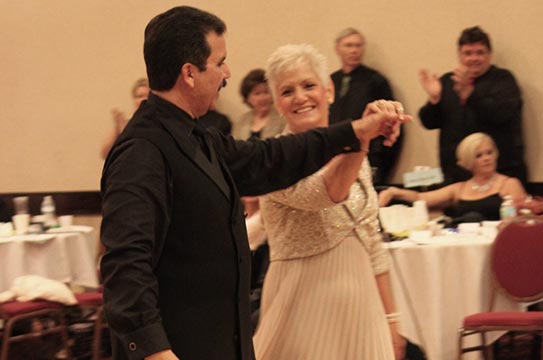
Dance Challenge to Benefit Nursing Students
Tuesday, May 1, 2012
- By Carol Traynor
Fans of MTV’s “America’s Best Dance Crew” or “Dancing with the Stars” will have a chance to cheer on some non-celebrity dancers in support of nursing students at Valencia College.
Femmes de Coeur is presenting “Let Us Entertain You” on May 20 from 4-9 p.m. in The Ballroom at Church Street in downtown Orlando. Proceeds will be used for nursing scholarships for Valencia, Florida Hospital College of Health Sciences, Seminole State College and UCF College of Nursing.
Paula Pritchard, dean of nursing, will be competing in the Faculty Challenge against nursing faculty from the other schools. The event also includes silent and live auctions.
Tickets are $75 each. You can purchase tickets in person at Valencia’s Nursing Department (West Campus, Health Sciences Bldg., Room 200, ask for Angela Lawrence-Pusey) or order tickets from Femmes de Coeur by calling Judy Conrad at 407-620-3987
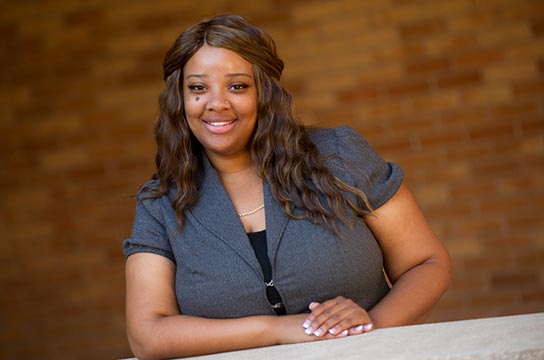
Shardeh Berry, Single Mom and Honors Student, Will Address a Record Crowd at Commencement
Tuesday, April 24, 2012
- By Carol Traynor
On Saturday, May 5, an estimated 1,260 graduates will receive their associate degrees as Valencia College celebrates its 43rd spring commencement at the Silver Spurs Arena in Kissimmee.
Twenty-four-year-old Shardeh Berry, who was named the 2011-12 Distinguished Graduate by the Valencia Alumni Association, will give this year’s commencement address. In addition to being a full-time honors student and single mom to two small children, Berry has found the time to serve her fellow students. She is vice president of the West Campus Student Government Association representing almost 20,000 students, and has held leadership roles with numerous clubs and organizations.
“Valencia students are not people who have carefree lives,” says Shardeh, who will graduate with an honors certificate. “We have jobs, children or people who are depending on us. But I want all students to know that you can be involved and being involved will change your life. I’m a better speaker and I’m better at time management than I used to be. And I have made friendships that will last forever.”
Berry plans to attend the University of Central Florida, where she wants to study international relations and ultimately work at the United Nations, focusing on human rights.
This will be the college’s first commencement as Valencia College, having changed its name from Valencia Community College last July. To honor the occasion and the graduates, the college posted the names of more than 8,000 students who graduated this school year on a Lynx bus with the message: “Congrats Class of 2012.” The bus will be parked just outside the arena for graduation photos of the students and their families.
Valencia is ranked first in the nation among all community colleges in the number of associate degrees awarded, second in the number of associate degrees awarded to Hispanics and third in the number awarded to African Americans.
Valencia’s overall graduation rate is nearly three times that of similar, large urban public community colleges as defined by the U.S. Department of Education. In the last decade, graduation rates for college ready students increased at Valencia by almost ten percent to 44.8 percent from 35.9 percent after four years.
Commencement exercises will take place at 10 a.m. at Silver Spurs Arena, Osceola Heritage Park, on U.S. Hwy. 192 in Kissimmee.
Valencia Launches New Honors College; Members of Inaugural Class Eligible for Full Scholarships
Tuesday, April 24, 2012
Valencia College will launch the new James M. and Dayle L. Seneff Honors College in the fall of 2012, providing new opportunities for students to excel at Valencia.
Funded by a $1 million donation from Orlando resident and CNL executive chairman James M. Seneff and his wife, Dayle, the new honors college will expand Valencia’s current honors program into a full-fledged honors college.
The James M. and Dayle L. Seneff Honors College will feature four different tracks, each of which will be housed on a separate Valencia campus.
- East Campus will host a track for students interested in academic research and is especially for students who plan to go to graduate school or professional school. With the guidance of a professor, students will learn how to conduct undergraduate research and will complete a research project and paper by the end of their second year.
- Osceola Campus will house the college’s leadership track, encouraging students to study different styles of leadership, and become agents of change in their communities. The track also has a service component, requiring students to perform community service with partner organizations in Osceola County.
- West Campus will be home to the interdisciplinary honors track, a humanities-style, multicultural curriculum that features team-taught courses on a wide variety of subject matter, from history to science, from art to philosophy.
- Winter Park Campus will be home to the “Jeffersonian” or general studies honors track. The track, which will offer students a well-rounded education and the opportunity to collaborate with college students in other countries, is still being developed. It will be available in 2013.
For a short time, students who apply to the honors college and are accepted will be offered full tuition scholarships. To qualify, students must apply for admission to the program by May 1. The regular deadline for fall admission to the James M. and Dayle L. Seneff Honors College is July 20.
For those who miss the May 1 deadline, there are still special scholarships available only to honors students.
The average class size for courses in the honors college will be about 15 students. In addition, honors students will receive inpidual attention and will have their own campus-based counselor. Honors students are also allowed to register for classes early, and have use of the Honors Resource Center.
Honors students also have the opportunity to travel abroad with their professors, and each month, students participate in events such as “pizza with the professors,” providing personal contact with their instructors.
Recent honors graduates from Valencia are finishing their undergraduate studies at Columbia University in New York, Emory University in Atlanta, Amherst College and Smith College in Massachusetts.
For more information on the new James M. and Dayle L. Seneff Honors College
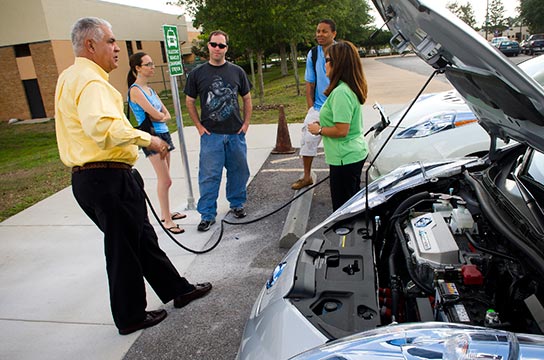
Valencia Installs Five Electric Car Charging Stations on West Campus
Monday, April 23, 2012
At the 2012 Earth Day celebration, Valencia made a significant contribution to cleaning the air: The college began installing five electric vehicle charging stations on its West Campus.
These chargers are being provided by Orlando Utilities Commission (OUC) as part of a ChargePoint America grant. The publicly-owned utility is providing the chargers in an effort to study the impact electric vehicles (EVs) will have on its electric distribution system.
At Valencia’s West Campus, each of the charging stations is capable of recharging two electric vehicles at a time. Two of these dual-mode stations have been installed near Valencia’s Allied Health Sciences Building, and the other three will be installed near the Valencia/UCF Joint Use Building (Building 11) by mid-May.
EVs and PHEVs (Plug-In Hybrid Electric Vehicles) can be charged using a standard 120-volt outlet and an extension cord, which is called Level I charging. However, the chargers located on Valencia’s campus carry 240 volts, the power needed to operate a household dryer. This allows a faster charge and is called Level II charging.
To use the charging stations, the driver pays for a few hours of charge at OUC’s current residential rate of 14 cents per kilowatt hour, or about 50 cents per hour, depending on the type of vehicle. Drivers can pay using either a ChargePoint Radio Frequency Identification (RFID) card or a contactless credit card, such as VISA’s PayWave or MasterCard’s PayPass cards (which operate using the same “wave your credit card at the pump” technology used by Mobil’s Speedpass.) Drivers can also pay by calling the toll-free number on the charging station.
Funding for the charging stations is part of a larger grant awarded by the U.S. Department of Energy to Coulomb Technologies. Coulomb received a $15 million grant from the DOE to jump-start the electric transportation movement and unveiled its first public charging station Feb. 2, 2010, in front of Orlando City Hall. Through the ChargePoint America grant, public charging stations are being installed at shopping malls, libraries, parks, hotels, community centers, public buildings hotels, theme parks and parking garages.
OUC has partnered with Coulomb and instituted its own sub-grant to subsidize the installation costs for Level II dual voltage (120/240V) public chargers within its service territory, including the new charging stations at Valencia College.
There are about 300 public charging stations located within a 70-mile radius of downtown Orlando, and about 12 new stations coming on line each week.
An electric charging station locator map is available on the Get Ready Central Florida website at www.plugandgonow.com. Drivers can also find all ChargePoint charging stations on their smart phones, using a mobile phone application available for iPhone, Android and Blackberry. Using the app, drivers can make a reservation at the ChargePoint station directly from their smart phones.
Valencia’s West Campus is located at 1800 S. Kirkman Road, Orlando.
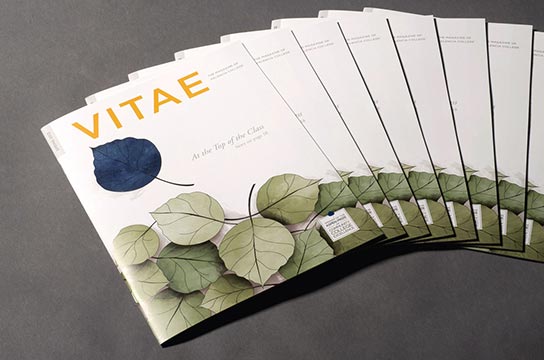
Don’t Miss the Spring Issue of Valencia’s Award-Winning Magazine
Thursday, April 19, 2012
The new issue of Vitae includes an article on “The Brainy Bunch” (Valencia’s stereotype-defying Brain Bowl team), a preview of the new Seneff Honors College, a behind-the-scenes look at the summer stage production of “The Laramie Project,” a story on a new class for app developers, and a cover story that takes a look at why Valencia beat out other colleges to win the first-ever Aspen Prize.
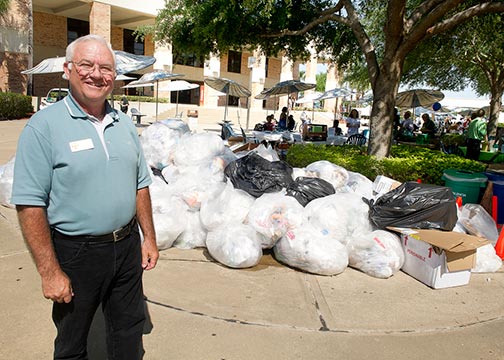
Valencia Cleans Up in RecycleMania
Monday, April 16, 2012
At Valencia, we’re not trashy.
In fact, the college doesn’t throw away much trash at least not for a place with more than 60,000 students. We’re so lean and green that Valencia won a first-place prize in this year’s RecycleMania competition.
The competition, which extended from Feb. 5 through March 31, included eight categories. The colleges and universities that took home top prizes in the three primary categories were:
- “Grand Champion” (determined by the percentage of overall waste recycled): American University- (85.16 percent) Washington, D.C.
- “Per Capita Classic” (determined by total pounds of recyclables collected per person): Union College- (61.79 lbs.) Schenectady, N.Y.
- “Waste Minimization” (determined by the lowest overall amount of recyclables and trash per person): Valencia College (2.75 lbs.) Orlando, Fla.
In the waste minimization category, schools compete to see which produces the least amount of both recyclables and trash on a per person basis. To encourage employees to reduce waste, Valencia has urged employees to make double-sided copies when using a copier, or to send emails, rather than making copies of documents to share. Likewise, the college recycles cardboard boxes in which textbooks and paper are shipped. The college also has begun installing water fountains where students and employees can refill water containers, rather than purchasing disposable bottles of water.
During the eight-week competition, Valencia processed 44,085 pounds of recyclables. The amount of greenhouse gases reduced by Valencia during the contest was the equivalent of pulling 18 cars off the road during that time.
This is the third year that Valencia has competed in RecycleMania. In 2010, Valencia finished in fourth place in the waste minimization category. Last year, Valencia took second place in that category. But this year, the college won first place.
And that, said recycling coordinator Jerry Cochran, feels good.
“Second place isn’t bad, but it’s nothing like first,” said Cochran, who has led Valencia’s recycling efforts since 2007.
RecycleMania began in January 2001 as a challenge between Ohio University and Miami University of Ohio, when the two recycling coordinators at the schools were looking for a way to motive their student bodies to recycling more. This year, 92 million pounds of recyclables and organic materials were recovered, which prevented the release of nearly 150,000 metric tons of carbon dioxide equivalent (MTCO2E). This reduction in greenhouse gases is equivalent to the annual emissions from more than 25,840 passenger cars; electricity use of more than nearly 16,406 homes; or the burning of nearly 705 railcars’ worth of coal. Equally impressive, the average recycling rate for participating schools increased from 27.61 percent to 28.49 percent over the course of the tournament.
Valencia implemented recycling and waste reduction programs to help reduce the college’s carbon footprint. In 2009, Valencia President Sandy Shugart signed the American College & University Presidents’ Climate Commitment (ACUPCC), a high-visibility effort to address global climate disruption. More than 600 colleges and universities have made institutional commitments to eliminate net greenhouse gas emissions from campus operations.

Golf Tournament Helps Underserved Youth Get to College
Friday, April 13, 2012
Helping underserved Orlando-area youth graduate high school and achieve their college dreams is the main goal of Take Stock in Children of Orange County.
Major support for that effort comes from the Take Stock in Children Golf Tournament, scheduled this year for Monday, April 23, at the Lake Nona Golf and Country Club.
Valencia College, Full Sail University and Tavistock Foundation are principal sponsors of the tournament.
Valencia administers Take Stock in Children, a statewide program, in the Orlando area in collaboration with Orange County Public Schools.
The idea: Get students in the seventh grade to sign contracts in which they promise to get good grades, behave positively and remain drug- and crime-free. In exchange they get mentors who help them stay in high school and graduate. The students’ reward for graduating: a 2+2 scholarship that pays two years of tuition at any state college and the following two years of tuition at a state university.
Valencia Gallery to Display Student Artwork Starting April 13
Tuesday, April 10, 2012
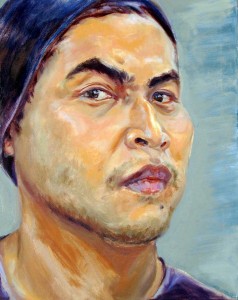
The Anita S. Wooten Gallery at Valencia College’s East Campus will host a display of juried student artwork, including fine art, graphic design and digital media from April 13 through May 18.
The 2012 Annual Juried Student Fine Art, Graphic Design and Digital Media Exhibition will kick off with an opening night reception on April 13 from 6:30 to 8:30 p.m. An awards ceremony will be held at 7:30 p.m.
The exhibition of student work will be on display at the gallery through May 18. The gallery is open weekdays 8 a.m. to 4:30 p.m. During Valencia’s summer sessions (May 7-July 31), the gallery will be open Mondays through Thursdays from 8 a.m. to 4:30 p.m. and on Fridays from 8 a.m. to noon.
Admission to the gallery is free.
For more information, please call 407-582-2268 or 407-582-2298.

Cabrera Morris Becomes First Hispanic Woman to Chair Valencia Board
Wednesday, February 22, 2012
- By Carol Traynor
At its February 21 meeting, the Valencia College District Board of Trustees voted unanimously to elect Bertica Cabrera Morris as its chair, making her the first Hispanic chairwoman in the college’s 44-year history.
Born in Havana, Cuba, Cabrera Morris owns and operates an Orlando public relations and governmental affairs consulting firm that represents Fortune 500 companies.
At the same meeting, the board elected Maria Grulich Toumazos as its vice chair. Grulich Toumazos serves as administrator of the Osceola County Economic Development Department.
The eight-member governing board is appointed by the governor to direct the college’s policies. Other members are Lewis Oliver, III, Jerry Buchanan, Lori Kifer Johnson, Jo Quittschreiber, Guillermo Hansen and Fernando Perez.
Valencia College was named the top community college in the nation for 2011-2012 by the Aspen Institute, a Washington educational- and policy-studies center. A panel of judges selected Valencia for the inaugural Aspen Prize based on the strength of its graduation and transfer rates, especially among minority students, as well as the high job placement rates of its workforce training programs.
Academic Issues
-
Valencia to Freeze Student Tuition for the Fall
![East Campus[1] East Campus[1]](/images/East-Campus1-117x76.jpg)
Thursday, May 17, 2012
During a visit to Tallahassee last February, Valencia President Sanford Shugart told lawmakers it would be a mistake to raise college
-
What’s the Future Hold? A Lot of Amazing Changes, Says Physicist

Thursday, May 17, 2012
Predicting the future is difficult but not impossible, says Dr. Michio Kaku. It helps, the renowned physicist told a crowd
-
Valencia Professor Quoted in Inside Higher Ed on Textbook Costs

Thursday, May 10, 2012
Across the country, colleges and universities are grappling with a thorny issue: How to reduce the cost of college textbooks, to....
-
Valencia Boosts Local Economy by $1 Billion a Year, Study Finds

Tuesday, May 1, 2012
At a time when Florida’s unemployment rate is 9.4% and public funding for higher education is being cut, a new study....
-
Valencia Launches New Honors College; Members of Inaugural Class Eligible for Full Scholarships
Tuesday, April 24, 2012
Valencia College will launch the new James M. and Dayle L. Seneff Honors College in the fall of 2012, providing new....
-
Don’t Miss the Spring Issue of Valencia’s Award-Winning Magazine

Thursday, April 19, 2012
The new issue of Vitae includes an article on “The Brainy Bunch” (Valencia’s stereotype-defying Brain Bowl team), a preview of the....
-
Fulbright Scholar to Share Insights into Modern Russia/images
Friday, March 30, 2012
How has Russia evolved since the collapse of the Soviet Union and what is life like in Russia today? Join.
-
Need Money for College? FAFSA Experts Will Help Walk You Through the Steps

Friday, February 24, 2012
More and more students need financial aid to pay for college. Simplifying the process is the purpose of a month-long event....
-
Valencia Film Celebration to Unveil Two Student-Made Films
Friday, February 3, 2012
The 17th Annual Valencia Film Celebration will be held Feb. 16 and 17 and will showcase two feature-length films produced by....
-
Need Money for College? FAFSA Experts Will Help Walk You Through the Steps
Wednesday, February 1, 2012
More and more students need financial aid to pay for college. Simplifying the process is the purpose of a month-long event....